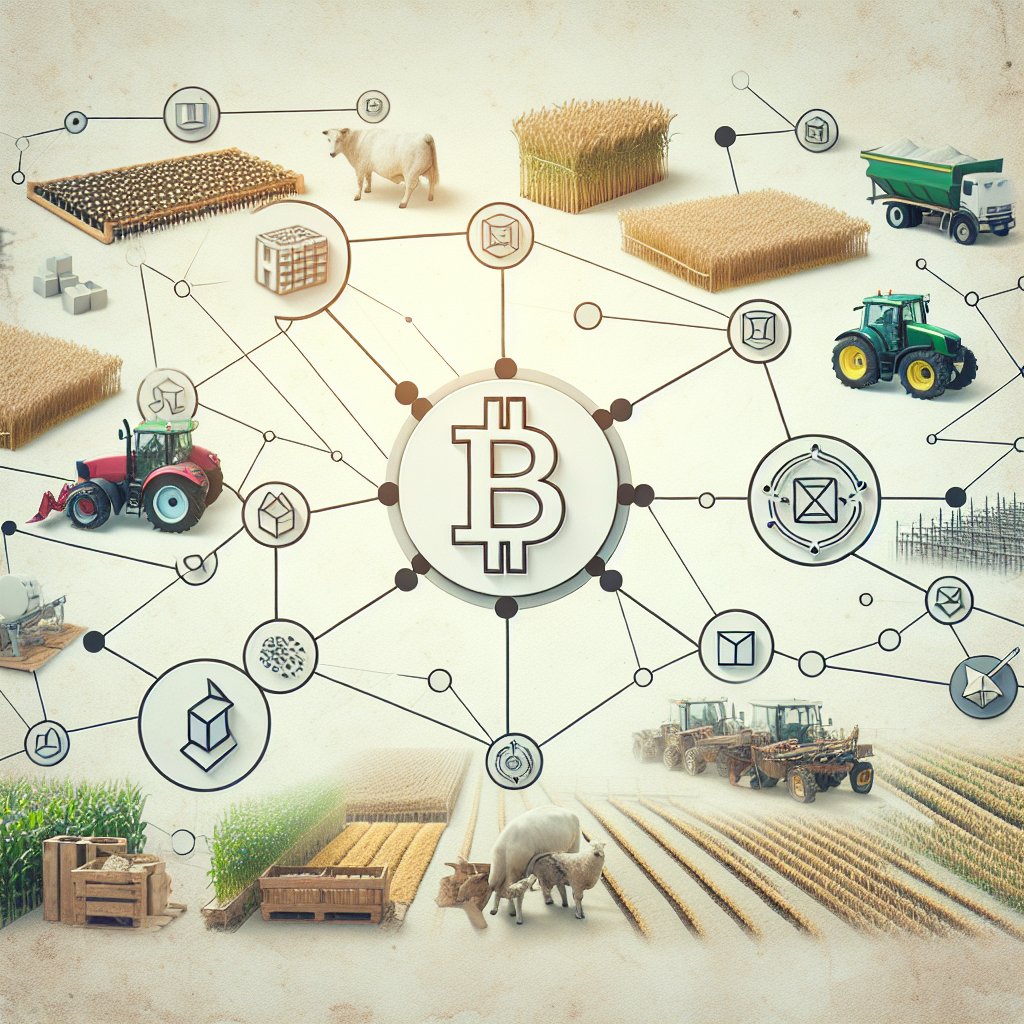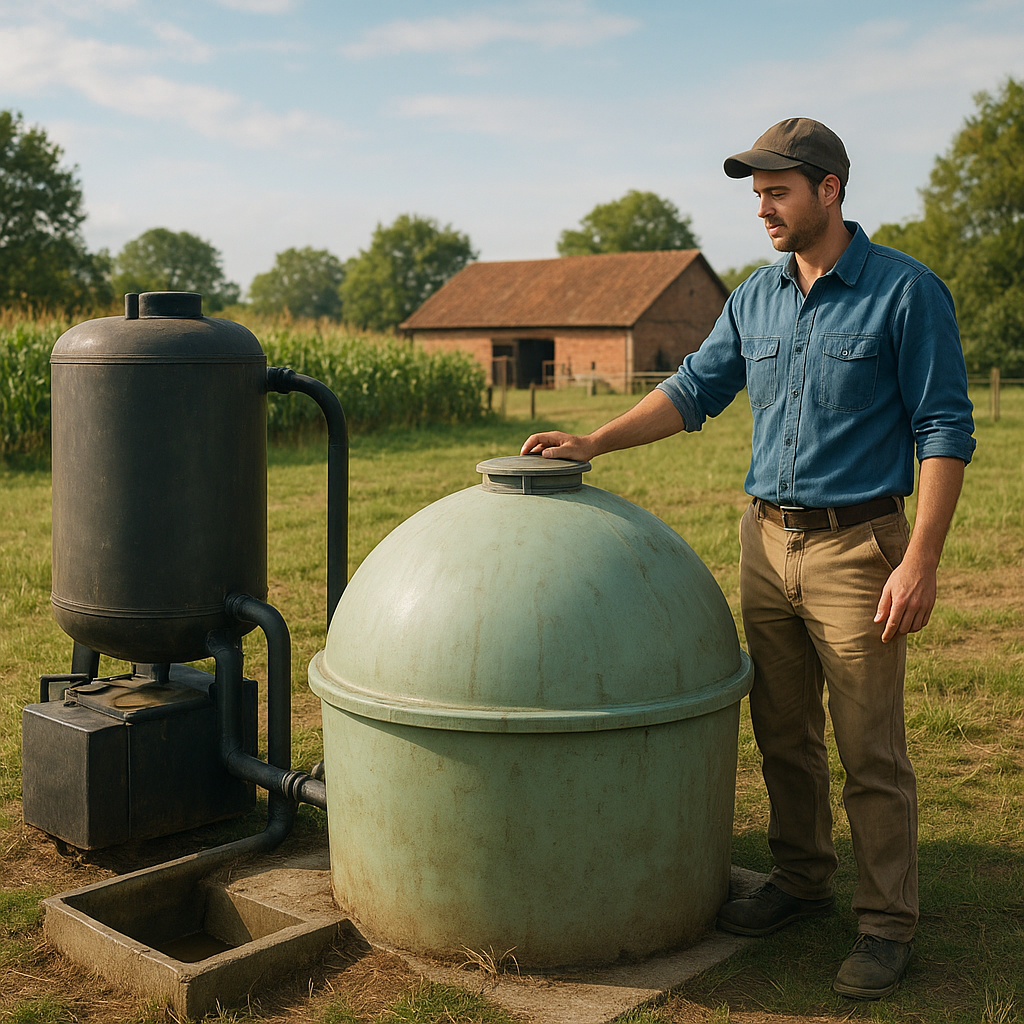Blockchain technology, often associated with cryptocurrencies, is making significant strides in transforming modern farming practices. As the agricultural sector faces numerous challenges, including supply chain inefficiencies, food safety concerns, and the need for sustainable practices, blockchain offers innovative solutions that promise to revolutionize the industry.
Understanding Blockchain Technology
To appreciate the impact of blockchain on modern farming, it is essential to understand what blockchain technology entails. At its core, blockchain is a decentralized digital ledger that records transactions across multiple computers. This ensures that the recorded data is secure, transparent, and immutable. Each block in the chain contains a list of transactions, and once a block is completed, it is added to the chain in a linear, chronological order.
One of the key features of blockchain is its ability to provide a transparent and tamper-proof record of transactions. This is achieved through cryptographic hashing and consensus algorithms, which ensure that once data is recorded, it cannot be altered without the consensus of the network. This level of security and transparency is particularly beneficial in industries where trust and traceability are paramount, such as agriculture.
Enhancing Supply Chain Transparency
One of the most significant applications of blockchain in agriculture is enhancing supply chain transparency. The agricultural supply chain is complex, involving multiple stakeholders, including farmers, processors, distributors, retailers, and consumers. This complexity often leads to inefficiencies, fraud, and a lack of traceability, which can compromise food safety and quality.
Blockchain technology addresses these challenges by providing a transparent and immutable record of every transaction along the supply chain. From the moment a crop is harvested to the point it reaches the consumer, every step can be recorded on the blockchain. This allows all stakeholders to access real-time data about the origin, quality, and journey of agricultural products.
For instance, if a batch of produce is found to be contaminated, blockchain can quickly trace the source of the contamination, allowing for swift and targeted recalls. This not only protects consumers but also helps maintain the reputation of brands and reduces financial losses associated with widespread recalls.
Improving Food Safety and Quality
Food safety is a critical concern in the agricultural industry, and blockchain technology offers a robust solution to enhance food safety and quality. By providing a transparent and traceable record of the entire production process, blockchain ensures that all parties involved adhere to safety standards and regulations.
For example, blockchain can be used to record data about farming practices, such as the use of pesticides, fertilizers, and water management. This information can be accessed by regulators, retailers, and consumers, ensuring that agricultural products meet safety and quality standards. Additionally, blockchain can facilitate the certification process for organic and fair-trade products, providing consumers with confidence in the authenticity of their purchases.
Facilitating Sustainable Farming Practices
Sustainability is a growing concern in agriculture, as the industry seeks to balance the need for increased food production with environmental conservation. Blockchain technology can play a pivotal role in promoting sustainable farming practices by providing a transparent and accountable system for tracking resource use and environmental impact.
For instance, blockchain can be used to monitor and record data on water usage, carbon emissions, and soil health. This information can help farmers optimize their practices, reduce waste, and minimize their environmental footprint. Moreover, blockchain can facilitate the implementation of incentive programs for sustainable practices, such as carbon credits or subsidies for water conservation, by providing a verifiable record of compliance.
Empowering Farmers and Smallholders
Blockchain technology has the potential to empower farmers and smallholders by providing them with greater access to markets, financial services, and information. In many parts of the world, smallholder farmers face challenges in accessing credit, insurance, and fair market prices due to a lack of transparency and trust in the system.
Blockchain can address these challenges by providing a secure and transparent platform for transactions. For example, smart contracts—self-executing contracts with the terms of the agreement directly written into code—can be used to automate payments and ensure that farmers receive fair compensation for their produce. Additionally, blockchain can facilitate access to microloans and insurance by providing a verifiable record of a farmer’s production history and creditworthiness.
Furthermore, blockchain can enhance information sharing and collaboration among farmers, researchers, and agricultural organizations. By providing a decentralized platform for data exchange, blockchain can facilitate the dissemination of best practices, research findings, and market information, enabling farmers to make informed decisions and improve their productivity.
Challenges and Future Prospects
While blockchain technology offers numerous benefits for modern farming, its implementation is not without challenges. One of the primary obstacles is the lack of infrastructure and technical expertise in rural areas, which can hinder the adoption of blockchain solutions. Additionally, the integration of blockchain with existing systems and processes can be complex and costly.
Despite these challenges, the future prospects for blockchain in agriculture are promising. As technology continues to evolve and become more accessible, it is likely that more farmers and agricultural organizations will adopt blockchain solutions. Moreover, as consumers increasingly demand transparency and sustainability in their food choices, the pressure on the agricultural industry to implement blockchain technology will continue to grow.
In conclusion, blockchain technology holds the potential to transform modern farming by enhancing supply chain transparency, improving food safety and quality, facilitating sustainable practices, and empowering farmers. While challenges remain, the continued development and adoption of blockchain solutions promise to drive innovation and efficiency in the agricultural sector, ultimately benefiting all stakeholders involved.



